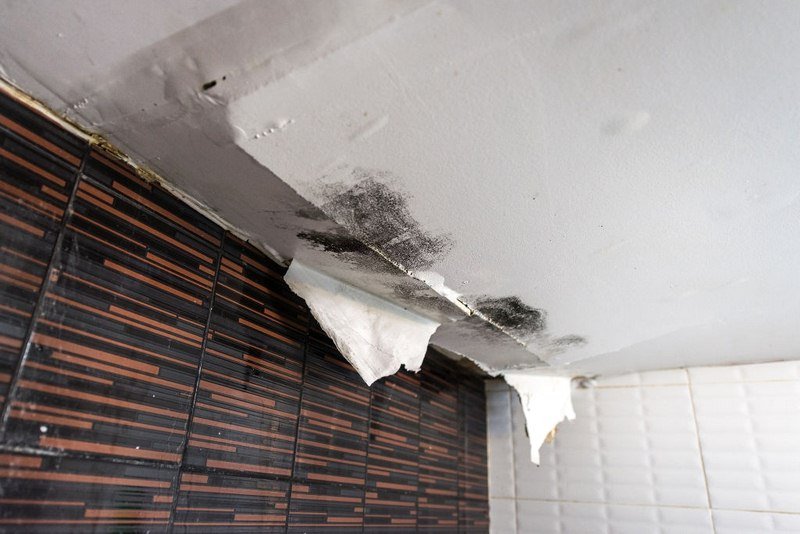Your Home's Most Common Triggers of Leakage: Detailed Examination
Your Home's Most Common Triggers of Leakage: Detailed Examination
Blog Article
What're your opinions on Common Water Leaks In House?

Leakages not only cause waste of water but can additionally create unnecessary damages to your house as well as advertise unwanted natural growth. Sadly, water leakages could go unnoticed because a lot of the pipework in our residence is concealed. By comprehending and looking for everyday scenarios that trigger leaks, you can protect your residence from future leaks as well as unneeded damage. Today, we will certainly check out six leakage causes that may be triggering your pipelines to leak.
Intruding roots
Many water leaks start outside your house rather than inside it. If you observe an unexpected reduction in water stress, claim in your tap, require time to head out and analyze your yard. You may notice wet patches or sinkholes in your backyard, and that may suggest that tree roots are getting into water lines creating water to permeate out. You can have your plumber look for intrusion, particularly if you have trees or bushes near your property.
Corroded water supply
As time goes by, your plumbing system ages and rust such as corrosion might start gnawing the pipelines. This might be the source of discoloration or bending on your pipes. This asks for an assessment with your plumber quickly. Think about changing the pipelines considering that they are at a greater risk of deterioration than the more recent designs if our plumbing system is old.
Defective Pipeline Joints
Pipeline joints can wear away over time, resulting in water leakages. If you have loud pipelines that make ticking or banging noises, particularly when the hot water is transformed on, your pipe joints are probably under a lot of pressure.
Instantaneous temperature level modifications.
Severe temperature changes in our pipelines can create them to expand and also contract all of a sudden. This development as well as contraction might create splits in the pipes, especially if the temperature are listed below freezing.
Poor Water Connectors
Sometimes, a leak can be brought on by loosened hoses as well as pipelines that supply your appliances. More often than not, changing is what creates the loosened water Links. You might find when it comes to a cleaning machine, a tube might spring a leak as a result of shaking throughout the spin cycle. In case of a water connections leak, you might notice water running directly from the supply line or pools around your home appliances.
Blocked Drains
Clogged drains pipes might be irritating as well as inconveniencing, however they can occasionally wind up causing an overflow resulting in burst pipes. Maintain eliminating any products that might decrease your drains that can block them to avoid such troubles.
All the above are root causes of leaks but not all water leaks arise from plumbing leakages; some leakages might originate from roof leakages. All leakages must be repaired immediately to stay clear of water damage.
Leaks not just cause waste of water yet can likewise trigger unnecessary damage to your home and also promote unwanted natural growth. By recognizing and also looking for day-to-day scenarios that trigger leaks, you can safeguard your house from future leaks and unneeded damage. Today, we will look at six leakage causes that may be creating your pipes to trickle.
At times, a leakage can be caused by loose tubes and also pipes that provide your home appliances. In instance of a water links leak, you may notice water running directly from the supply line or pools around your home appliances.
How To Check For Water Leak In Your Home
How To Check for Leaks
The average household's leaks can account for nearly 10,000 gallons of water wasted every year and ten percent of homes have leaks that waste 90 gallons or more per day. Common types of leaks found in the home are worn toilet flappers, dripping faucets, and other leaking valves. These types of leaks are often easy to fix, requiring only a few tools and hardware that can pay for themselves in water savings. Fixing easily corrected household water leaks can save homeowners about 10 percent on their water bills.
To check for leaks in your home, you first need to determine whether you're wasting water and then identify the source of the leak. Here are some tips for finding leaks:
Take a look at your water usage during a colder month, such as January or February. If a family of four exceeds 12,000 gallons per month, there are serious leaks.
Check your water meter before and after a two-hour period when no water is being used. If the meter changes at all, you probably have a leak.
Identify toilet leaks by placing a drop of food coloring in the toilet tank. If any color shows up in the bowl after 10 minutes, you have a leak. (Be sure to flush immediately after the experiment to avoid staining the tank.)
Examine faucet gaskets and pipe fittings for any water on the outside of the pipe to check for surface leaks.
Undetected water leaks can happen without the home or business owner even realizing. If you suspect a water leak, but not able to find the source. It is time to contact a professional water leak detection service, The Leak Doctor.
How To Find a Water Leak In Your Home
https://www.leakdoctor.com/blog/How-To-Check-For-Water-Leak-In-Your-Home_AE197.html

I have been very serious about How Fast Water Damage Can Ruin Your Home and I really hope you appreciated the entire post. Appreciated our review? Please share it. Help someone else find it. I appreciate reading our article about How to detect water leaks in your home.
Overflow resolution available. Report this page